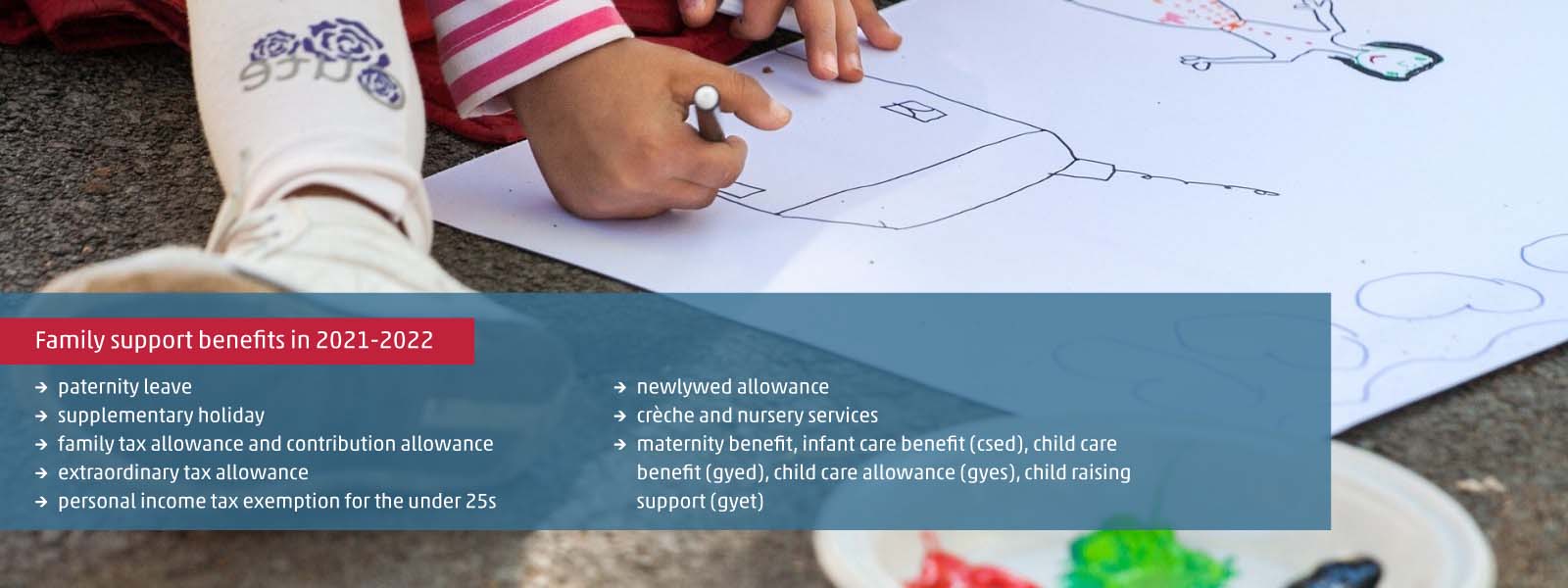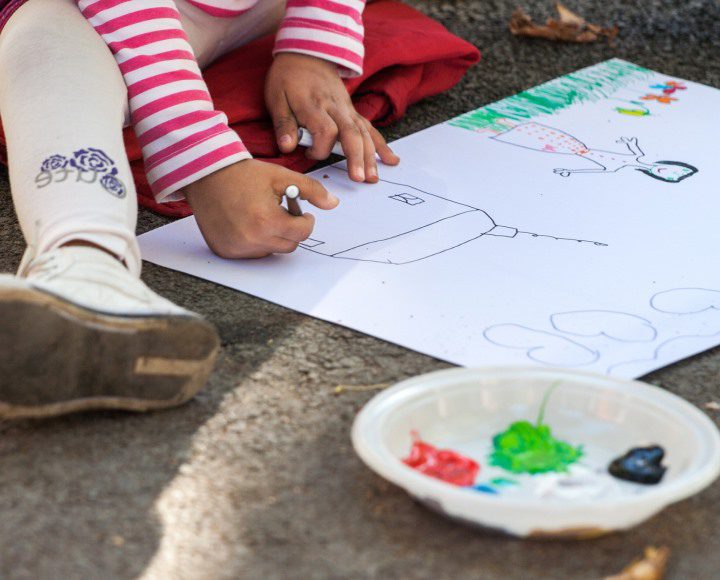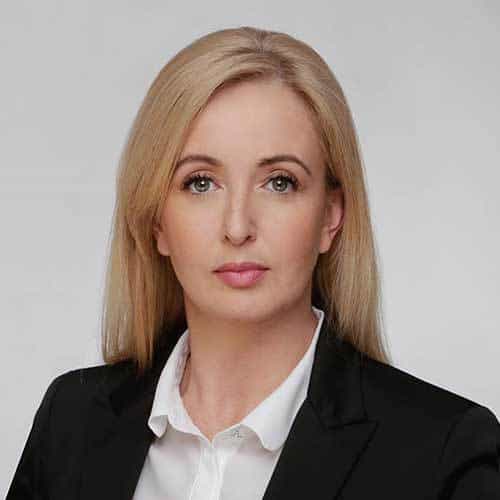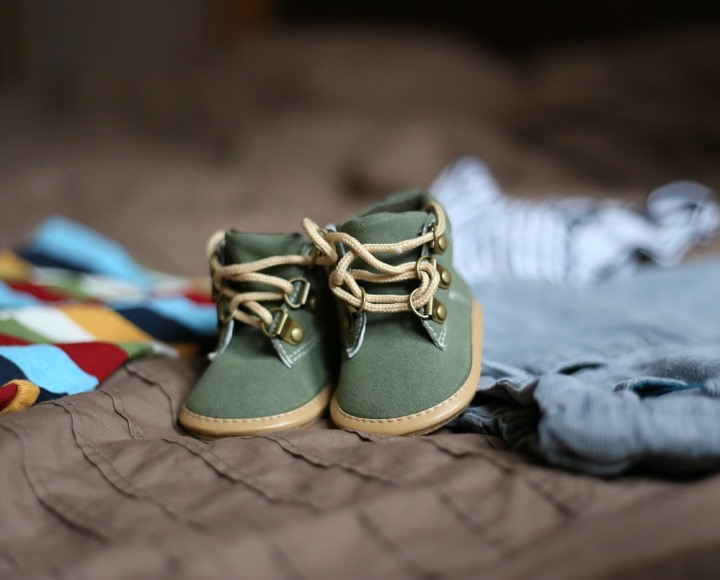Two years ago we summarised what the main and most frequent family support benefits are in Hungary. Yet we are now quite used to the amounts changing every year, what is more, the scope of the benefits and the rights to family support benefits also vary. It is certainly not always easy to navigate through the changes, so below we give an overview of what benefits and allowances parents and employees are entitled to in 2021 and 2022, and what benefits subject to preferential tax rates for some enterprises might possibly expect.
Paternity leave
Following the birth of their child, fathers are entitled to five days of paid leave, which they may take in one or in several parts until the end of the second month after the child is born. Any income and taxes related to this period of supplementary leave are reimbursed to the employer by the Hungarian State Treasury.
Supplementary leave for children
In Hungary, both parents have the right to claim extra paid leave based on the number of children they have, which amounts to two days for one child, four days for two children, and six days for three or more children. This supplementary leave may first be claimed by parents in the year the child is born, and for the last time in the year the child turns 16.
Family tax allowance
Individually or on a shared basis, parents can reduce their consolidated personal income tax base based on the number of children they have. This means the personal income tax base may be reduced by as much as HUF 66,670 (roughly EUR 184) per month with one child, by HUF 133,333 (roughly EUR 368) per child per month with two children, and by HUF 220,000 (roughly EUR 608) per child per month with three or more children. With regard to the amount of tax this translates to a reduction of HUF 10,000, HUF 20,000 and HUF 33,000 (roughly EUR 28, 55 and 91) per eligible dependant. Parents can also claim the family tax allowance from the 91st day of the pregnancy.
If the personal income tax base is not enough to claim the entire family tax relief, parents may use this allowance (family contribution allowance) for their social security contribution. From 1 July 2020, the previous 1,5% labour market contribution became part of the social security contribution, increasing the basis of the allowance.
Here we need to mention the newlywed allowance too, which can be claimed by couples for 24 months after the wedding where this is the first marriage for at least one of the spouses. Individually, or together, the couple can claim a monthly total tax base allowance of HUF 33,000 (roughly EUR 92), which in practice reduces tax by HUF 5,000 (roughly EUR 14) – regardless whether the couple claims the family tax relief or not.
Extraordinary tax refund
Until 15 February 2022, families with children can receive an extraordinary tax refund. This tax refund is available for all parents with children eligible for the family tax allowance, and relates to tax paid in 2021 for the following activities: independent and non-independent activity, tax on other income, two-thirds of the simplified contribution to public revenues (EKHO), and one-quarter of the 2021 itemised tax of KATA business-owners raising children. However, personal income tax can be refunded at most up to the tax on the average annual wage calculated based on data from December 2020. The state refunds up to HUF 809,000 (roughly EUR 2,237) as a maximum each to parents paying personal income tax and those under the EKHO scheme.
Personal income tax allowance for the under 25s
Another new element to the family support benefits affects those under 25. From 1 January 2022, people under 25 do not have to pay personal income tax on their income forming part of the consolidated tax base, i.e. on their wage income, and on income from other non-independent activity and certain independent activities (e.g. fees for services, entrepreneurial income, etc.). There is a ceiling here too. This means that personal income tax does not have to be paid up to an amount corresponding to the average national gross wage published by the Hungarian Central Statistical Office for full-time employees in July of the previous year multiplied by the number of entitlement months; the exemption from personal income tax does not apply to any wage in excess of this amount.
Crèche and nursery
Crèche and nursery services for employees’ children may be reimbursed as tax-free benefits based on an invoice, up to the amount of the cost incurred.
Back-to-school vouchers
In previous years, back-to-school vouchers for primary or secondary school children were a popular element of the fringe benefit system. However, this type of benefit is now subject to the same tax rate as wages.
Family allowance
Family allowance is the most traditional of family support benefits. The Hungarian state provides a family allowance for parents from the birth of their child until the child finishes his or her education, but no later than the school year in which the child turns 20. The amount of the family allowance has not changed for several years, and payments will continue in 2022 as well. It amounts to HUF 12,200 (roughly EUR 34) for one child, HUF 13,300 (roughly EUR 37) per child in the case of two children, and HUF 16,000 (roughly EUR 44) per child if there are three or more children. Parents raising children on their own – or if the child is terminally ill or seriously disabled – are eligible for a higher family allowance.
Maternity benefit
Women who attended prenatal care at least four times during their pregnancy are eligible for a state-granted maternity benefit amounting to HUF 64,125 (roughly EUR 177) in 2021 and 2022, or HUF 85,500 (roughly EUR 236) in the case of twins.
Family support benefits for childcare
Infant care benefit (csed) is provided for women who had social security for at least 365 days within the two years prior to their child’s birth. Infant care benefit is provided for the duration of maternity leave, i.e. for 168 calendar days.
Child care benefit (gyed) is provided until the child turns two, and is paid to women who had social security for at least 365 days within the two years prior to the child’s birth. In 2021 the ceiling for the child care benefit was set at HUF 234,360 (roughly EUR 648) per month. If the minimum wage for 2022 is accepted at a gross sum of HUF 200,000 (roughly EUR 553), then the child care benefit in 2022 will be capped at HUF 280,000 (roughly EUR 774). With child care benefit the mother is entitled to work regular hours after her child turns six months old.
Child care allowance (gyes) amounts to HUF 28,500 (roughly EUR 79) per child per month in 2021, and this is unlikely to change in 2022 either. With the child care allowance, similarly to the child care benefit, the mother is entitled to work regular hours after the child turns six months old. Parents or grandparents are eligible to receive the child care allowance until the child turns three.
In 2021 and 2022, parents and grandparents raising three or more children may claim child raising support (gyet) of HUF 28,500 (roughly EUR 79) per month while the youngest child is aged between three and eight. With child raising support, however, the parent or grandparent can only work 30 hours a week, or work from home without any working-hour restrictions.
The types of family benefit listed above, applicable in Hungary in 2021 and 2022, are just the most general and typical cases. There are special cases and provisions not elaborated on here, but our payroll specialists are happy to give you more information for your company about any of the family support benefits available in 2021 and 2022.











